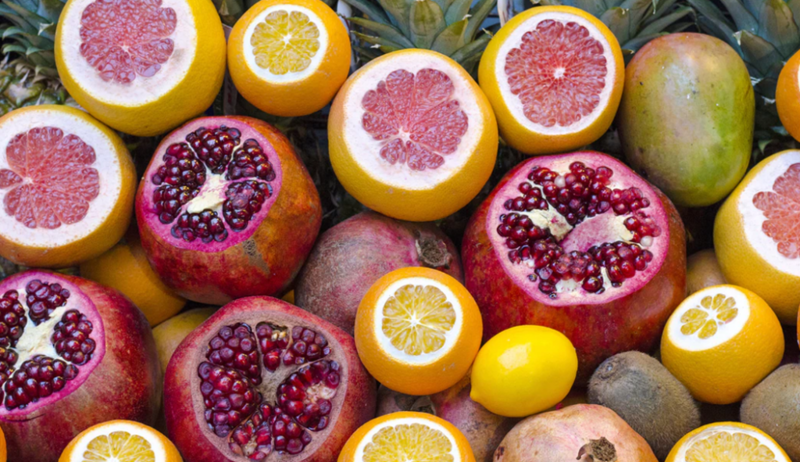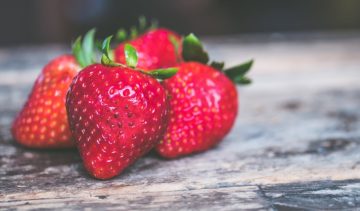Almost everyone knows that it’s important to have plenty of vitamins in your diet. Otherwise you will get sick more easily. Partly because of this, people take vitamin supplements to get their daily dose. Makes sense, right? Because this will stop you from getting sick. Sure! However, supplements often contain many vitamins which isn’t always good for the body. Also, there are lots of different vitamins that all have specific functionalities. Some of these don’t even have to be taken with supplements. In this article, we discuss vitamins and what vitamin supplements can do for you.
What are vitamins?
Vitamins are chemical bonds that the body needs to grow, heal and function properly. Most vitamins can’t be made by the body itself, so we must get these from different kinds of food and supplements. There is a distinction between two kinds of vitamins. Fat-soluble vitamins like A, D, E and K. These can be stored by the body. Then there are water-soluble vitamins like B1, B2, B3, B5, B6, B8, B12 and vitamin C. The body excretes these through urine, which means we should take these on a daily base.
All the vitamins in a row
- Vitamin A: Important for functional immune system. Also, the hair, skin and eyes benefit from healthy dose of vitamin A. Fish, liver, margarine and carrots are rich in vitamin A.
- Vitamin B1: Is an energy catalysator. It helps to burn carbs and is found in pork meat, grain products and leguminous vegetables.
- Vitamin B2: Important for a proper digestion and is found in many foods like: Dairy, meat, vegetables, fruit and grain products.
- Vitamin B3: Helps to let the nervous system function properly. Rich sources of B3 are fish, meat nuts, grain products, vegetables and fruit.
- Vitamin B5: Helps to break down carbs, proteins and fat. B5 can be found in almost all types of food like fish, meat, grain procuts but also in vegetables and fruits
- Vitamin B6: Main function of this one is to support the digestive system, but is also important for the creation of red blood cells. B6 can be found in fish, meat, eggs, grain products and leguminous vegetables.
- Vitamin B8: Helps with the build of fatty acids, important in decreasing the risk for heart and vascular diseases. B8 can mostly be found in eggs, dairy, nuts and pure dark chocolate.
- Vitamin B11: Also called folic acid. Has an important part in the forming of red blood cells and DNA. Folic acids are also important for the growth of the embryo during pregnancy.
- Vitamin B12: Also stimulates the production of red blood cells and plays a part in letting the nervous system function properly.
- Vitamin C: Good for the immune system. Kiwi’s, citrus fruits, bell peppers are high in Vitamin C. Other fruits and vegetables also contain vitamin C.
- Vitamin D: Found in dairy, fatty fish and is also added to margarine. However, the most important source is the sun because the sun starts vitamin D making processes in the skin.
- Vitamin E: Keeps the skin, nerves, muscles, and heart in shape. Rich sources are nuts, vegetable oils and grain products.
- Vitamin K: Is made by bacteria in the colon and can also be found in green vegetables like spinach and broccoli. It’s important for blood clotting and blood flow in your veins.
Supplement Do’s and don’ts
Vitamin supplements can be a healthy ‘’supplement’’ for a healthy body because, people often struggle to get their daily intake of vitamins and minerals. These simple do’s and don’ts can help you with this.
Do’s:
- Adjust your supplements to your diet. Use the right vitamins as a supplement
- Over 50, breastfeeding or a dark skin? Then you could benefit from extra vitamin D supplements, especially in winter!
- Be cautious with supplements when you take medicines or smoke. For example, some blood thinning medicines do not go well with certain vitamin supplements or raise the risks of smoking related diseases.
- Take supplements during dinner. Stomach juices help to improve vitamin uptake.
- Take extra vitamin C when you have a cold or are low on energy.
Don’ts
- Don’t take supplements with coffee or tea, because this can reduce the effectivity of supplements. This is due to reduced uptake capacity by caffeine and tannin.
- Don’t take a double dose when you missed one! First, your body can’t process a double dose and second, this can even be harmful to your body.
- Don’t replace food by supplements. They are called ‘’supplements’’ for a reason.










